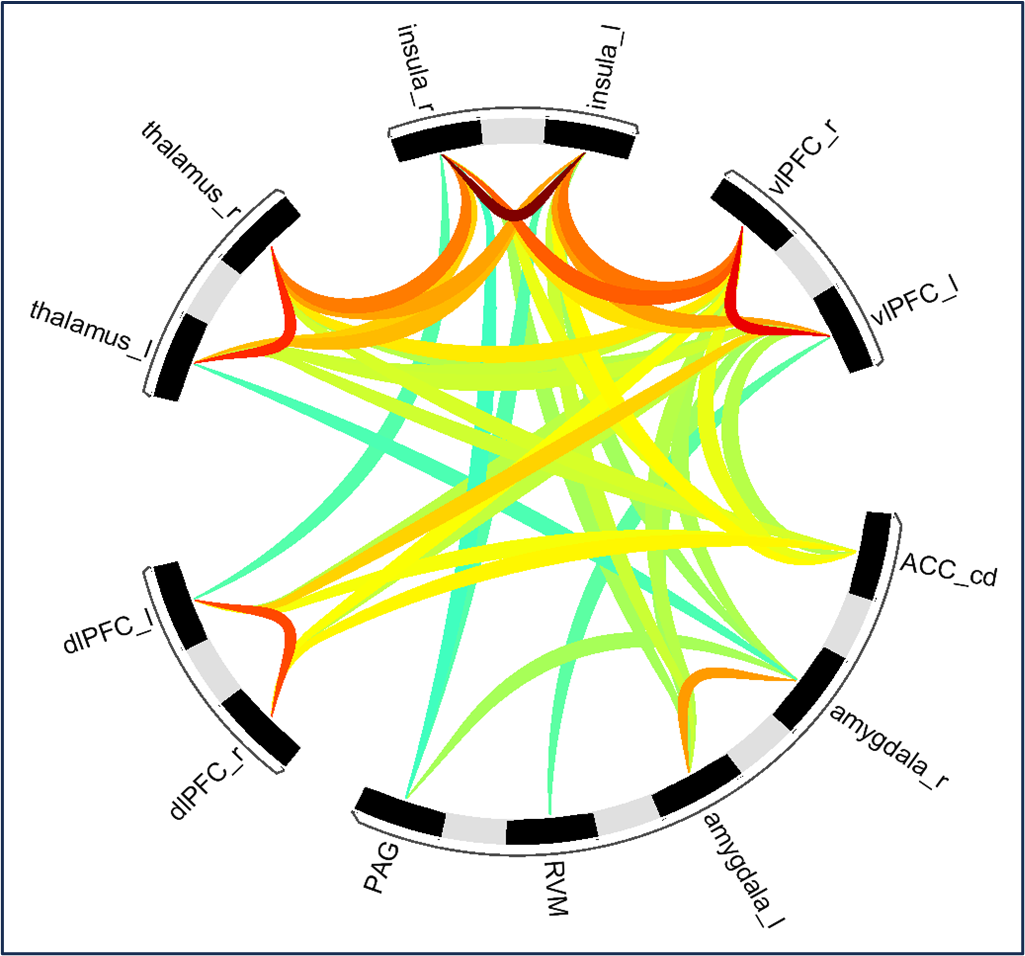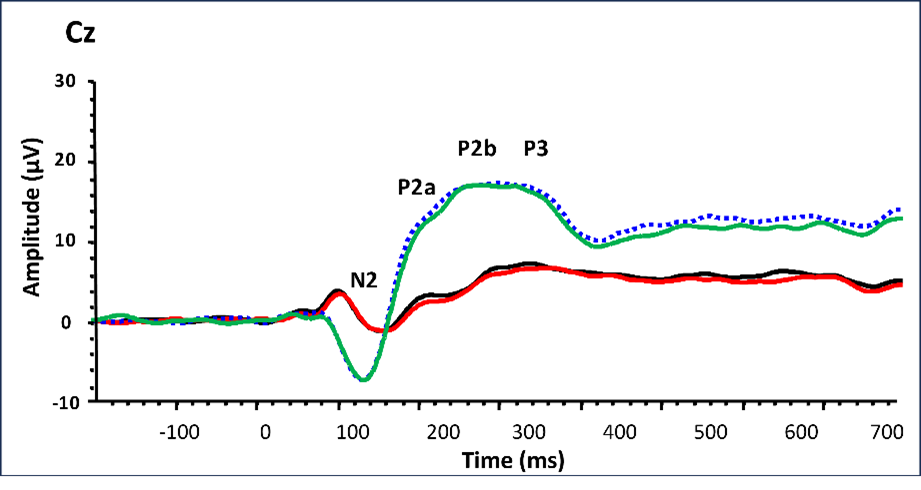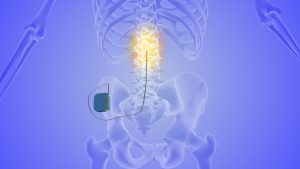Our research
Pain is a highly personal experience, influenced strongly by all kinds of factors, including psychological factors such as stress, emotions, attention, and expectations. For example, a negative mood may exacerbate pain, whereas a good mood may alleviate pain. Likewise, worrying about pain may make it worse, while positive expectations may provide relief. These types of psychological pain modulation are mediated by dedicated pathways in the central nervous system, the so-called “descending pain control” system. This system consists of a network of brain regions that can send signals down via the brainstem and spinal cord, to either facilitate or inhibit upcoming nociceptive signals.
In the P3Lab, we study various aspects of psychological pain modulation by combining neuroimaging, psychophysiology and behavioural experiments. One major research theme is the identification of predictors of pain modulation capacity. We conduct studies to explore the role of individual differences in cognitive function, attitudes and physiology in determining the success of different types of pain modulation strategies. We also explore the influence of biological factors such as age and sex in influencing pain perception and modulation. And finally, we use brain imaging techniques, such as fMRI and EEG, to explore how the brain mediates different forms of psychological pain modulation.


Our projects
- Audacious Brain Cognition Data Embeddings (ABCDE)
- The influence of stress on the efficacy of transcutaneous electrical nerve stimulation (PLANOS)
- Age-related Changes in Human pain perception and modulation: Evidence from functional brain imaging (ACHE)
- Cognitive Modulation of Pain in Aging – Impact of Stress and Executive Functions – a Psychophysiological Approach (PAGES)
